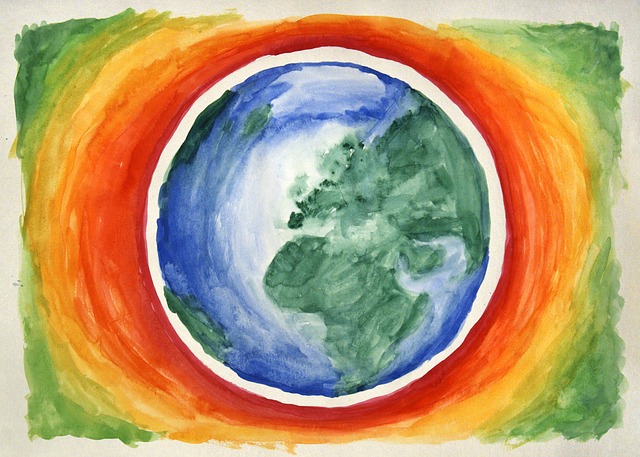 It is but a speck of blue in the vast ocean of space. Yet it is essential for our very survival. We call it our home and it is our planet Earth.
It is but a speck of blue in the vast ocean of space. Yet it is essential for our very survival. We call it our home and it is our planet Earth.
Every year on April 22, people from over 195 countries come together to give our Earth the attention that is due.
The theme for Earth Day 2024 is "Planet vs Plastics" as plastics have become one of the most pressing issues of the 21st century.
Let's learn more about Earth Day's origin and this year's theme.
Origin of Earth Day
Did you know that Earth Day began more than 50 years ago due to one man's call to action?
 On April 22, 1970, 20 million Americans - mostly college students, took to the streets, parks, and auditoriums to clean, pick up trash, plant trees, and do many acts, to show their concern for the planet we call home.
On April 22, 1970, 20 million Americans - mostly college students, took to the streets, parks, and auditoriums to clean, pick up trash, plant trees, and do many acts, to show their concern for the planet we call home.
They were responding to a plea from Gaylord Nelson, a senator from Wisconsin. Senator Nelson was deeply disturbed that an issue as important as our environment was not addressed by politics or by the media, and was inspired by the student anti-war protests of the 1960s.
The response to his call was astonishing, and the grassroots movement eventually led to national legislation such as the Clean Air Act and the Clean Water Act. Today, Earth Day has become an international movement, celebrated in 195 countries.
Many believe 'Earth Day' enjoys this massive support because ordinary people who care for the environment find it an opportunity to send a message to public officials to protect our planet. It also is a great way to educate the general public.
Planet vs Plastics
 There is no denying plastic’s usefulness. It’s everywhere: in household products, clothes, toys, packaging. The material has also brought life-saving innovations to our society – medical devices, helmets, and more. And yet, plastic’s convenience has had devastating impacts on our environment.
There is no denying plastic’s usefulness. It’s everywhere: in household products, clothes, toys, packaging. The material has also brought life-saving innovations to our society – medical devices, helmets, and more. And yet, plastic’s convenience has had devastating impacts on our environment.
Plastic is manufactured from fossil fuels and releases toxic and greenhouse gases at all stages of its production. According to the OECD, plastics generated 1.8 billion tonnes of greenhouse gases in 2019 -- about 3.4% of global emissions. Much of these emissions come from the production stage. This number is on the rise and could hit 4.3 billion tonnes by 2060!
However, just 9 percent of plastic is actually recycled. Plastics are overwhelmingly single-use and most of them end up as litter in landfills, dumps, and the environment.
Despite their brief life span, plastics can remain intact for hundreds of years and linger in the environment as microplastics. These minuscule pieces of plastic have already seeped into our water and food, and scientists have detected them in even the most remote places on Earth, such as the Mariana Trench.
Animals are especially vulnerable as both land and sea animals ingest microplastics. Millions of animals die every year, either suffocating in large pieces of litter or starving to death from plastic-packed stomachs.
Even as countries signed a global treaty in March 2022 to curb plastic waste, much more needs to be done beyond individual actions. Hopefully, the theme of Earth Day will spur awareness and lead to more policies at the state and local levels. Read our past articles on Youngzine on the issue of plastics.
Sources: OECD, Earth Day
















